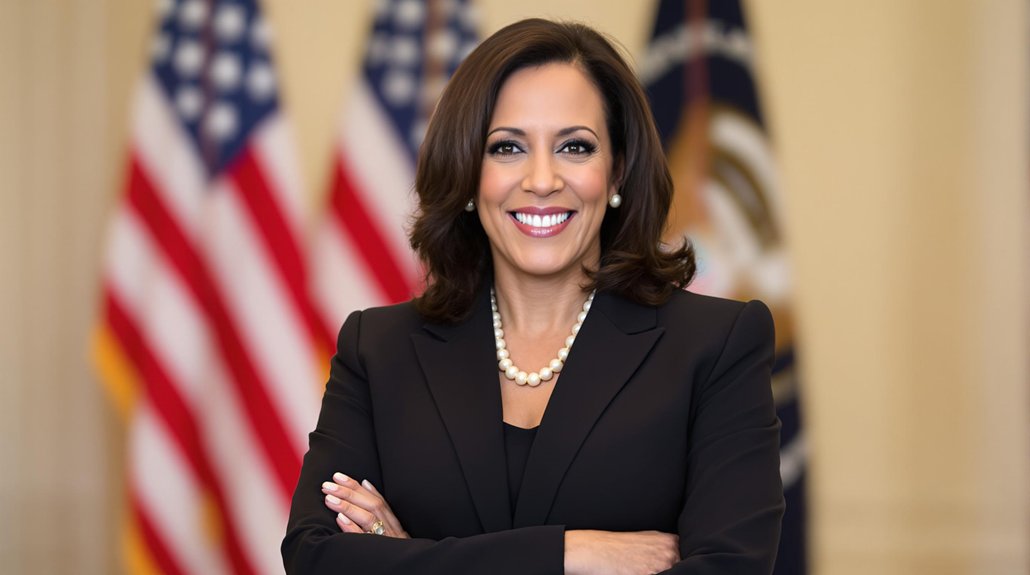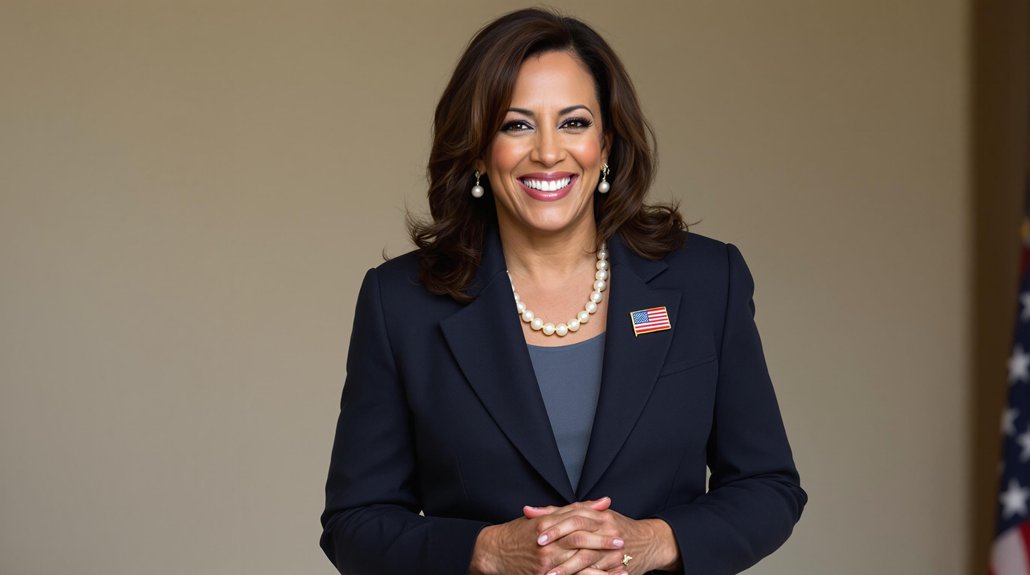Kamala Harris serves as the 49th Vice President of the United States, making history as the first woman, first Black American, and first South Asian American to hold this office since January 20, 2021. Born in Oakland, California in 1964 to Indian and Jamaican immigrants, she previously served as California’s Attorney General and San Francisco’s District Attorney, focusing on criminal justice reform and consumer protection throughout her career. Her multifaceted background reveals additional dimensions of her political journey.

Kamala Devi Harris, a trailblazer who shattered multiple barriers in American politics, serves as the 49th Vice President of the United States, having been sworn into office on January 20, 2021, alongside President Joe Biden. Her historic ascension to the vice presidency marked unprecedented representation, as she became the first woman, first Black American, and first South Asian American to hold this position in the nation’s history.
Born October 20, 1964, in Oakland, California, Harris is the daughter of Indian and Jamaican immigrants who raised her primarily in the San Francisco Bay Area. This multicultural background fostered early connections to both Indian and African diasporas, shaping her perspective on social justice and public service.
Her multicultural upbringing in the Bay Area cultivated deep connections to diverse communities, fundamentally shaping her commitment to social justice and public service.
Harris pursued higher education at Howard University, where she majored in political science and economics while joining Alpha Kappa Alpha sorority, before earning her Juris Doctor from the University of California, Hastings College of the Law.
Harris’s political career began locally, serving as District Attorney of San Francisco from 2004 to 2011, becoming the first woman to hold this position. She subsequently served as California’s Attorney General from 2011 to 2017, where she focused extensively on criminal justice reform, consumer protection, and immigration issues. Her tenure as Attorney General established her reputation as a progressive prosecutor committed to systemic reform. During this period, she refused to defend Proposition 8, contributing to its overturning in 2013.
In 2017, Harris shifted to federal politics, representing California in the U.S. Senate until 2021, where she sponsored and advocated for progressive legislation addressing various social and economic issues. Her senatorial work positioned her as a prominent Democratic voice on key national concerns.
As Vice President under the Biden administration, Harris has acted as a key partner in economic recovery initiatives, job creation efforts, and public health policies. Her advocacy extends to women’s reproductive rights, gun safety measures, voting rights protection, and environmental policy advancement.
Significantly, she oversaw the establishment of the first White House Office of Gun Violence Prevention and supported major infrastructure investments. As vice president, she has cast 33 tie-breaking votes, more than any other vice president in U.S. history.
Harris’s policy achievements include leading the expansion of Medicaid postpartum care, contributing to the creation of 16 million jobs, supporting 20 million new small business applications, and helping cap insulin costs at $35 monthly for seniors. She has also championed transformative rule changes removing medical debt from credit scores and promoted significant infrastructure improvements.
Throughout her extensive diplomatic efforts, Harris has visited 36 states, completed 17 foreign trips, and met with over 150 world leaders, representing American interests globally.
Married to attorney Douglas Emhoff, Harris continues to be recognized as a symbol of multicultural representation and remains frequently cited among the most influential women in modern American political history.







